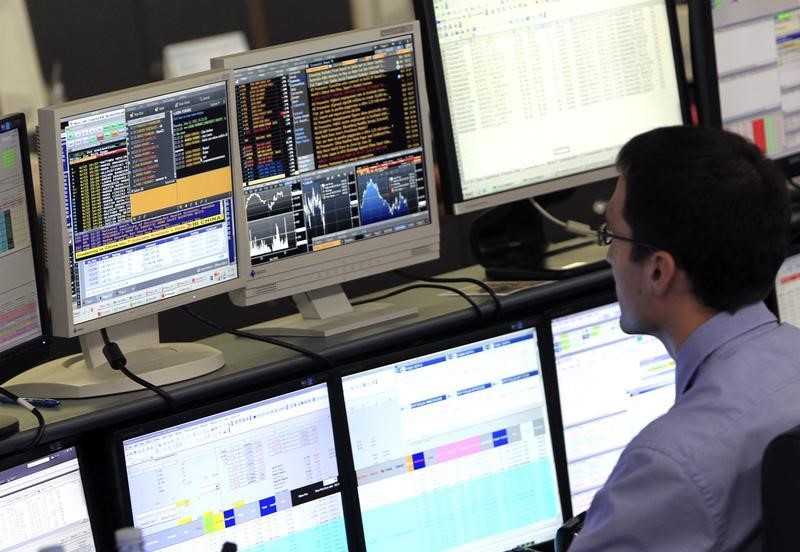This post was originally published on this site
https://i-invdn-com.akamaized.net/news/LYNXNPEB7Q0U9_M.jpg © Reuters. IEX plan to thwart predatory trading with AI gets pension backing
© Reuters. IEX plan to thwart predatory trading with AI gets pension backingBy John McCrank
NEW YORK (Reuters) – A group of North American retirement plans with more than $3.3 trillion in assets has backed a proposal by exchange operator IEX Group to use artificial intelligence to counter technology some high-speed traders use to get a trading edge.
New technologies and regulations have made the U.S. equity market more efficient. But they have also created speed advantages when executing stock orders, the group, led by pension plans in Ontario and Quebec, as well as the New York City Comptroller, said in a letter to the U.S. Securities and Exchange Commission.
“These speed advantages have tilted the playing field in favor of firms specializing in ‘latency arbitrage,’ reducing the willingness of both long-term investors and market makers to display quotes,” the group, which also includes retirement plans in California, Wyoming, and Arizona, said in the Feb. 24 letter.
In latency arbitrage, when a stock price changes on one of the 13 U.S. exchanges, a firm uses advanced technology to race ahead electronically to the other exchanges microseconds before the price updates to buy or sell at an advantageous level.
IEX asked the SEC in December to let it use machine learning-based software to monitor data feeds from all U.S. exchanges to identify when stock quotes are likely to change and then send a “signal” that momentarily prevents affected displayed stock orders from executing. IEX is currently using the signal for undisplayed orders, which are priced off of displayed orders.
The signal is on for 0.2% of the trading day, and during that time, 24% of IEX’s displayed stock orders are currently executed. That indicates sophisticated traders are taking advantage of tiny windows of time when prices are changing, the exchange said.
The SEC said on Feb. 12 it needed more time to evaluate IEX’s proposal after trade groups representing automated trading firms and broker dealers, as well as individual firms Hudson River Trading and IMC, said quotes on IEX would not be reliable if it went ahead.
IMC called IEX’s proposal “a perilous gimmick that creates a safe zone for illusory orders.”
Investment and trading firms that have asked the SEC to approve IEX’s proposal include Raymond James, Jefferies (N:), T. Rowe Price (O:), Baird, AGF, Clearpool and market makers XTX and Virtu Financial (O:).
“We believe that IEX’s proposal is a highly innovative, market-based solution that will mitigate the negative effects of certain predatory trading behaviors that have been spawned by the latency arbitrage that exists in today’s lightning speed markets,” Virtu said.
Fusion Media or anyone involved with Fusion Media will not accept any liability for loss or damage as a result of reliance on the information including data, quotes, charts and buy/sell signals contained within this website. Please be fully informed regarding the risks and costs associated with trading the financial markets, it is one of the riskiest investment forms possible.

